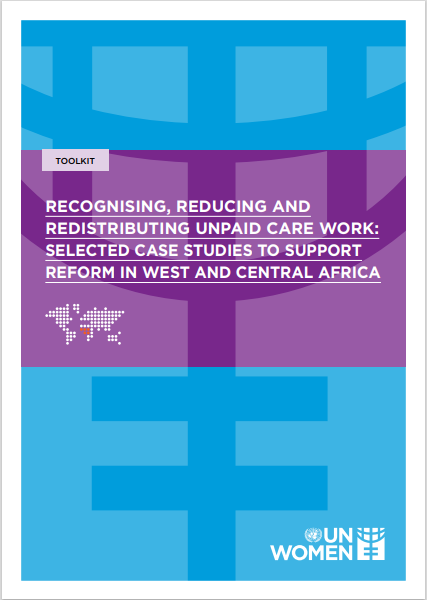
Toolkit - Recognizing, Reducing and Redistributing unpaid care work: selected case studies to support reform in West and Central Africa

The time spent by women on domestic and care tasks is one of the most important constraints they face in running their businesses or advancing in their professional careers as employees, thereby holding back their economic empowerment. Therefore, there is a clear need to recognize, reduce and redistribute unpaid care work performed by women. However, there is very little attention paid to unpaid care in the policy agenda of West and Central Africa, which is dominated by other priorities as a result of overlapping crisis. While unpaid care intersects with many of these crises by limiting women’s coping strategies and their participation in economic activities that are essential to build resilience, there is not enough evidence or understanding of such critical links. This toolkit presents a compilation of case studies that have been selected to support partners, governments and civil society in dialogue around the implications of unpaid care work on women’s lives and countries development outcomes and for positioning (unpaid) care reform in a more central role in policies in the region. The case studies selected touch on different aspects of the care economy and unpaid care reform. They include examples of care service provision, care policy frameworks and reform, care assessments and analytical tools, and financing mechanisms for care. They present cases of private sector as well as public sector, and community/CSO-led initiatives, and include care solutions that are locally based as well as others with a national reach.